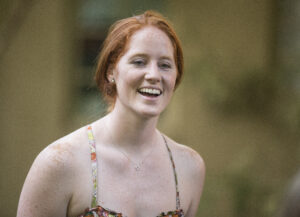
After seven years in the Medical Scientist Training Program (MSTP) at Vanderbilt University School of Medicine, Dr. Lizzie (Hale) Flook prepares to graduate with her MD this Friday. The University of Miami alumna, who played collegiate volleyball, earned her Ph.D. in neuroscience from Vanderbilt University last year, studying stress-related brain regions during abstinence in individuals with alcohol use disorder. This summer, she will start her intern year at the Hospital of the University of Pennsylvania, where she will begin her research track psychiatry residency.
She recently sat down to share her reflections on her time in the MSTP, from her early days in the dual-degree MD/PhD program to now.
Q: What do you remember most about your first days in MSTP in 2015?
A: I really remember thinking that I had found my people. I remember meeting my classmates and being so excited to get to know them. The MSTP students come about a month ahead of time, so we really bond together for that month ahead of orientation. I was so excited to get to know people and hear more of their stories. Such a great group of people.
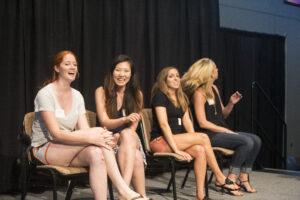
Q: How have you seen VUSM grow during your time here?
A: In my mind, VUSM has really allowed students to take the wheel in terms of what initiatives they pursue and where they’re focusing. It’s been cool – with every class that comes through – to see how things shift around them based on the unique character of that class. Things like the advancement of the wellness curriculum – that program has continued to grow because of the students who are really excited about it. I’ve seen a lot of initiatives and programs that focus on the whole person, not just life as a medical student in terms of academics, research, and clinic time. Those initiatives help to diversify the outlets students have while in medical school and broaden what kind of people they can be as medical students.
Q: How have you grown during your time in MSTP?
A: Objectively, I have a husband and two children now, (laughing), life things have happened. Obviously, that has made me grow a lot out of necessity. But I also think one thing that has really struck me that crept up on me: I feel like I have become very aware and respectful of how important this role as a physician-scientist is to the larger community. When you come here, you start out, and you think, “Oh, my parents asked me about their meds, ha ha ha.” But by the end, you realize the gravity of people are relying on you to help them live healthy lives. I always knew that was part of being a physician, but the last seven years have really instilled a sense of responsibility for me in terms of who I am and how I relate to other people, not only being part of their lives in whatever way I’m part of their lives, but also being a physician. I see how that responsibility to other people – family, friends, patients – intertwines.
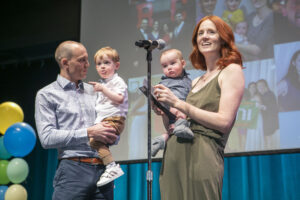
Q: How have you navigated life changes like motherhood during your studies?
A: I would say I’ve had a weird perspective because of the pandemic. My eldest son (Everett, b. 2020) was born right before the pandemic, and I’ve never felt anything but support from everybody in the administration, whether that be School of Medicine, MSTP, or the Graduate School. Everybody wants us to succeed in all the ways, and I think they recognize how challenging it is to be a parent in general, (laughing), but also while you’re trying to accomplish these things. From the top down, everybody is checking in and saying, “How are you? How can we help you get through this?” to help us be the best parents and best students that we can. It’s just been really gratifying and amazing having them look out for me. They offer support in any way – everything from recommending babysitters to talking about [returning to] the MD program after the PhD program. I had my younger son (Jordan, b. 2021) during my M4 year, and they really worked with me on my schedule. Dean Fleming was one of the first people to find out because I came into her office one day and said, “Okay, I also have to figure out my new schedule around a baby as well.” Just hearing very practical but also very supportive advice has been so helpful.
Q: What did you most enjoy about your time in MSTP or the last year preparing to graduate?
A: The last year of the MSTP has been a whirlwind. I was very apprehensive prior to restarting medical school, but I enjoyed every minute of it. When I was an M1, I remember looking up at the M4s and thinking, “I’ll never get there.” And the other day, I mentioned that to someone, and they said, “That’s you now. You’re the M4.” MSTP and VUSM prepare you for every step of the way, and it’s been really cool to see how it has all come together and allowed me to continue to do what I would like to do. My path was so well planned, not just by me but by the School of Medicine and MSTP leadership along with mentors preparing us so well.
Thinking about this journey, the MSTP encourages us to be whole people. Most of us graduate when we’re in our late 20s or 30s. Life happens whether you make room for it or not, so it’s been great being at a program that encourages us to live outside of the program and have a full life with families, travel, and other milestone moments. It’s so nice being able to celebrate or commiserate over both professional and personal events with the MSTP community and not have to hide part of your life away.
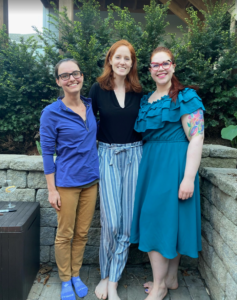
Q: What advice would you offer to subsequent generations of physician-scientist trainees?
A: Be where you are. As an M1, you’re not an M4. You’re not expected to be an M4. You’re expected to be an M1. You can definitely plan ahead, you can definitely think ahead, but hold yourself to the examples of where you are. Find good mentors in everything. I have mentors for research, I have mentors for clinic, I have mentors for parenting as a physician-scientist, I have mentors for outfits, (laughing). Find the role models – it doesn’t have to be one person. Find all of them.
Q: What excites you most about your next career step in residency?
A: Two parts – One, I’m looking forward to moving closer toward my career vision of what I want in life and being a physician-scientist, starting my own lab, and setting up a research identity. Those are all things I’ve been thinking really hard about for the past couple of years, and now I actually get to live those desires and take that next critical step.
In a similar vein, I’ve been learning all of this medical practice, and now I get to do some of it. It’s really exciting. On top of that, I’ve loved mentoring. The MSTP and VUSM allow you to mentor along the way the whole time you’re a student, and I’m excited to get to that next step where I can continue to mentor. That’s one of the main reasons I want to stay in academic medicine for my career. Vanderbilt has really helped not only give opportunities to mentor but also to teach you how to be a good mentor with leadership trainings and leadership opportunities. Vanderbilt also has great examples of who good mentors are and what they do – examples in our faculty and administration, even our peers. I have done nothing on my own. I have always checked with people who came before me, those I looked up to in the MSTP among all classes. We do a really good job of building community, and I hope I can be that person for the next generation. The people coming through are pretty impressive, so I’m excited to see what they do and how I might be helpful to them.
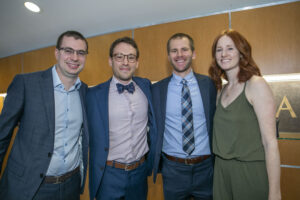
Q: If you could share anything with the VUSM community, what might that be?
A: I have a unique perspective in that I got to join two med school classes, the [graduating] Class of 2019 and the Class of 2022. I feel very privileged to have met not only the class with which I entered but that with which I will graduate. They’re both full of really exceptional physicians, both residents and soon-to-be residents, and I am really excited to see what they get to do. I’m grateful that I got to encounter so many great people. The year your original class matches into residency is a time to lean on the MSTP, for sure. You’re so proud of your class and their accomplishments, but you feel so far away from that goal. You think, “Will I ever get there?” At that point, I thought I might want to pursue psychiatry, but I wasn’t sure. It felt so foreign.
But I was amazed coming back to medical school from the graduate school. It all kind of flowed and was kind of seamless, which is a testament to Medical Student Affairs and Dean Fleming. They help us get back to medical school and ready for residency. The class that I joined is so kind. A bunch of the students knew my name, and I was so pleasantly shocked. I thought I’d just be this old person who showed up, prompting them to say, “Oh, this must be Lizzie. We’ve heard about her.” But I have no idea how they knew who I was. Did they get an email saying, “These MSTPs are coming back. Be nice to them”? But they all would say, “Lizzie! How are you?” They were really kind. I felt very welcomed.
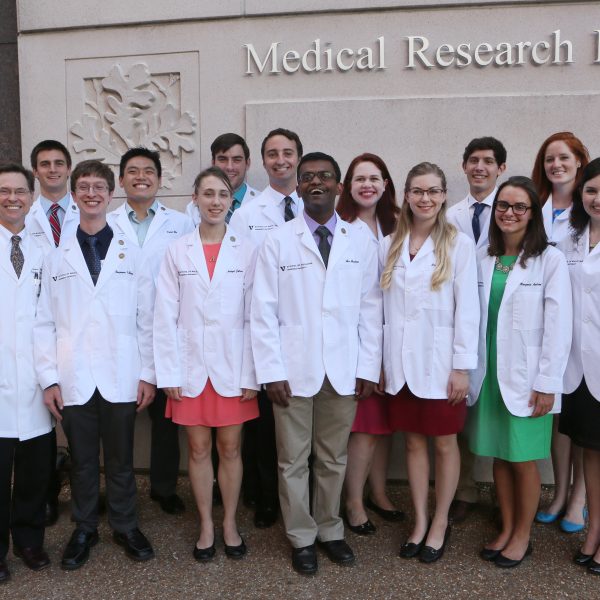
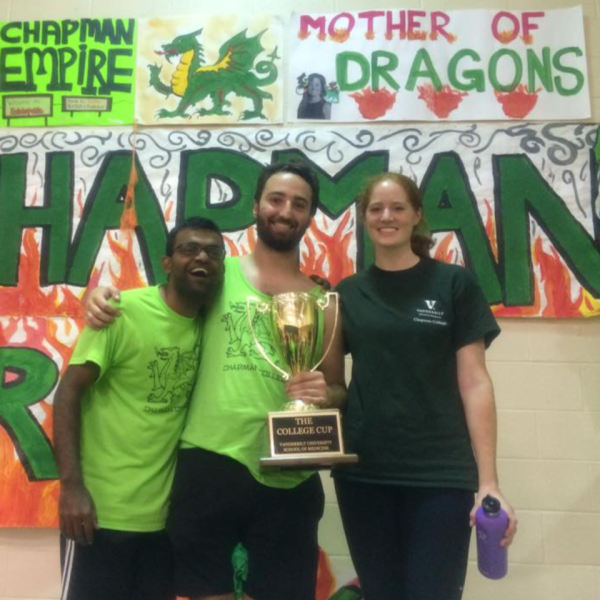
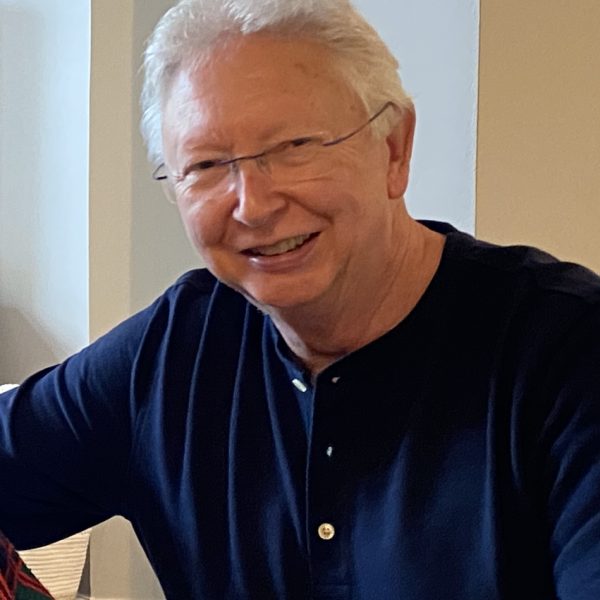
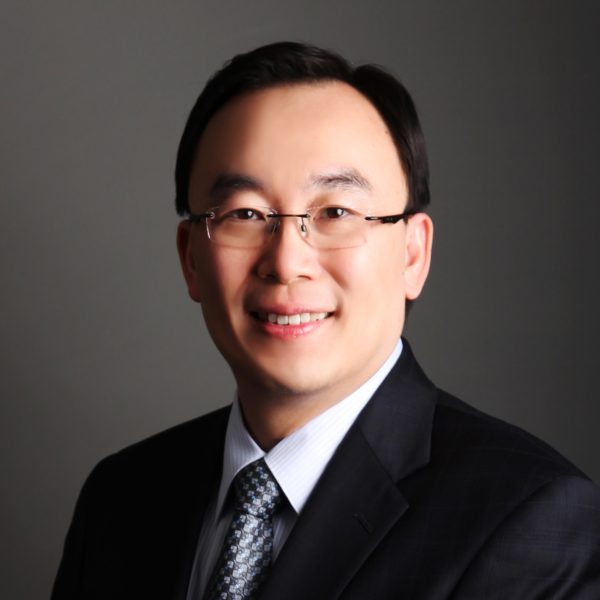
*Answers have been edited for length and clarity
Author: Lexie Little